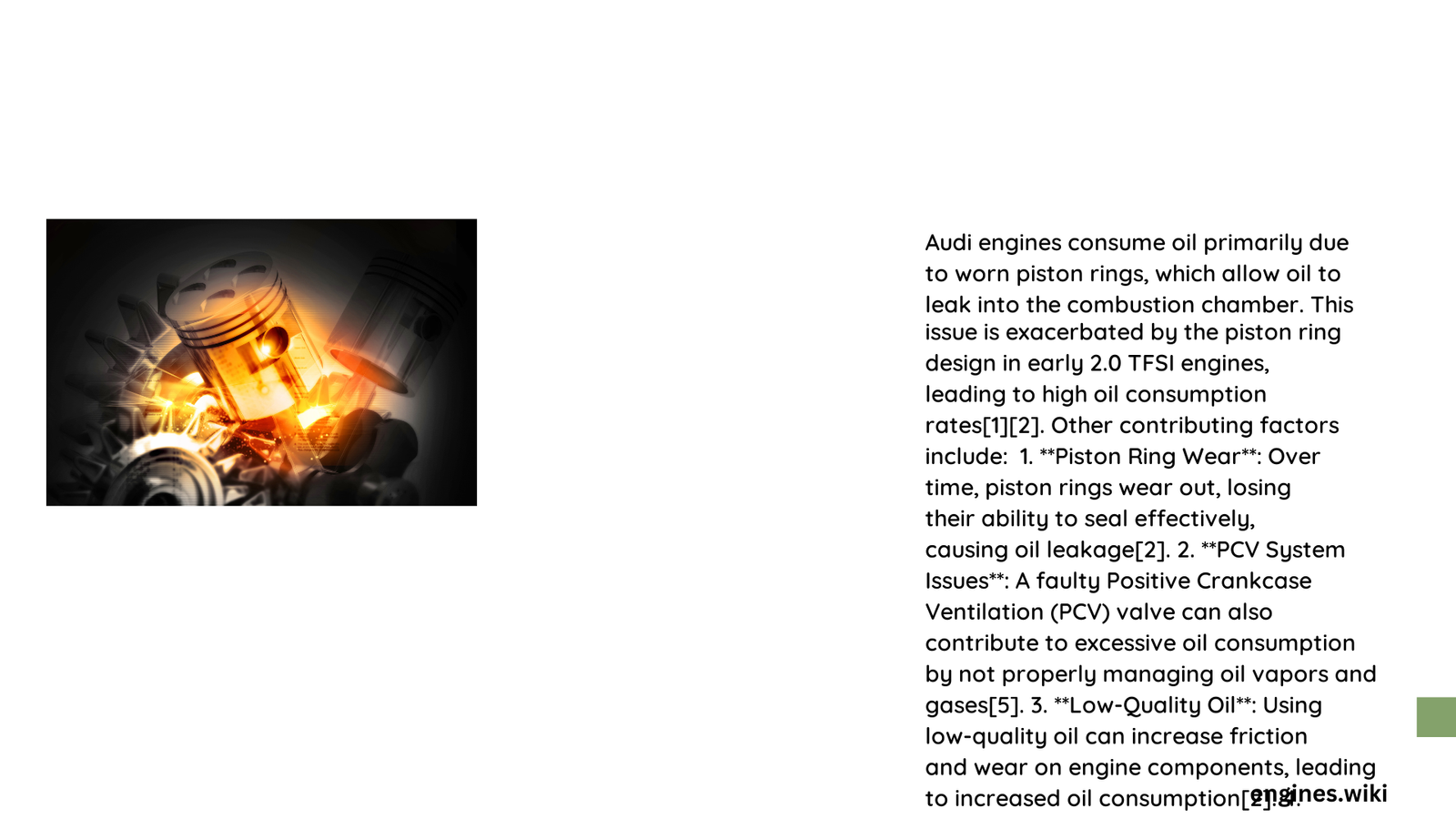Audi engines, particularly the 2.0 TFSI models, have gained notoriety for unexpected oil consumption issues that perplex owners and mechanics alike. These sophisticated German engineering marvels experience complex internal wear mechanisms that lead to accelerated oil loss, primarily through combustion chamber leakage and piston ring degradation. Understanding these intricate technical challenges requires a deep dive into the mechanical nuances that contribute to this persistent automotive problem.
What Causes Excessive Oil Consumption in Audi Engines?
Why Do Piston Rings Contribute to Oil Loss?
Piston rings play a critical role in maintaining engine efficiency and preventing oil migration. In Audi engines, several key factors contribute to their premature wear:
- Manufacturing Tolerances
- Tight manufacturing specifications
- Minimal clearance between piston and cylinder wall
-
Potential micro-imperfections during production
-
Material Degradation
- High-temperature operating environments
- Rapid thermal cycling
- Potential metallurgical inconsistencies
How Does Engine Design Impact Oil Consumption?
| Design Factor | Impact on Oil Consumption | Potential Consequence |
|---|---|---|
| Cylinder Wall Coating | Reduced lubrication effectiveness | Increased friction |
| Piston Ring Geometry | Compromised sealing capability | Oil leakage |
| Turbocharger Integration | Enhanced thermal stress | Accelerated component wear |
What Are the Diagnostic Indicators?
Owners should watch for these critical warning signs:
- Frequent low oil level notifications
- Blue-tinted exhaust smoke
- Decreased engine performance
- Oil consumption exceeding 1 quart per 500-600 miles
Why Do Early TFSI Engines Experience More Issues?
Pre-2012 Audi 2.0 TFSI engines demonstrated more pronounced oil consumption problems due to:
- Less refined manufacturing processes
- Earlier turbocharger technology
- Limited understanding of high-performance engine dynamics
How Can Owners Mitigate Oil Consumption?
Recommended preventative strategies include:
- Regular professional engine diagnostics
- Using manufacturer-recommended high-quality synthetic oils
- Maintaining consistent service intervals
- Monitoring oil levels between scheduled maintenance
Technical Recommendations for Audi Owners

Professional mechanics suggest the following interventions:
- Conduct official consumption tests
- Verify warranty coverage
- Consider potential crankcase replacements
- Evaluate piston ring condition through comprehensive engine analysis
What Are the Long-Term Implications?
Unaddressed oil consumption can lead to:
– Accelerated engine wear
– Potential catastrophic engine failure
– Significant repair costs
– Reduced vehicle performance and reliability
Conclusion
Understanding why Audi engines consume oil requires a nuanced approach that combines mechanical expertise, diagnostic precision, and proactive maintenance. While design challenges exist, informed owners can effectively manage and mitigate these technical complexities.
